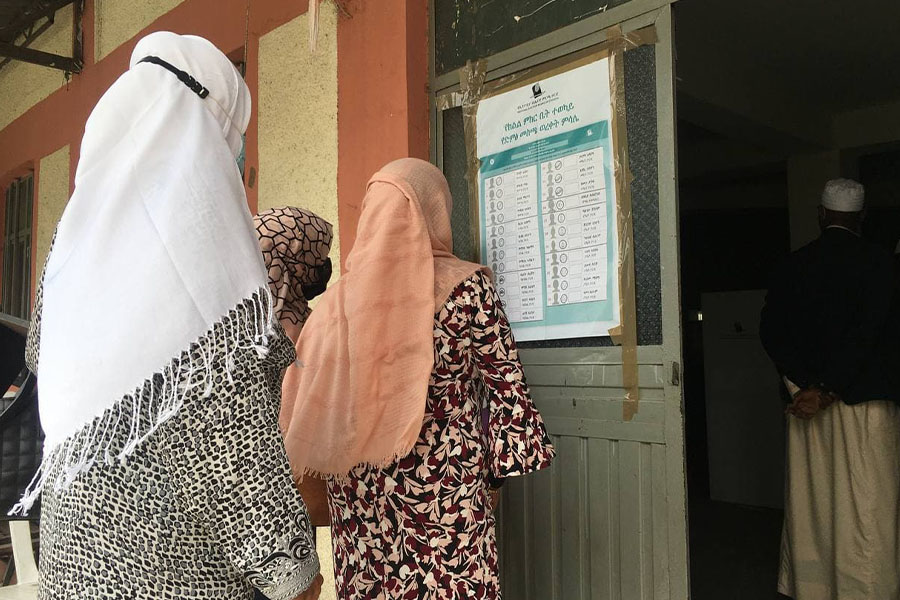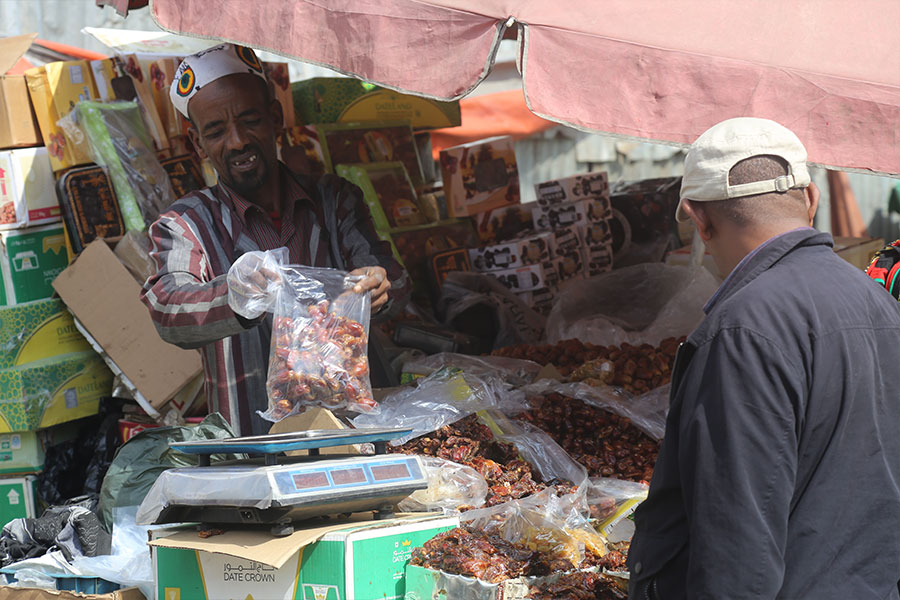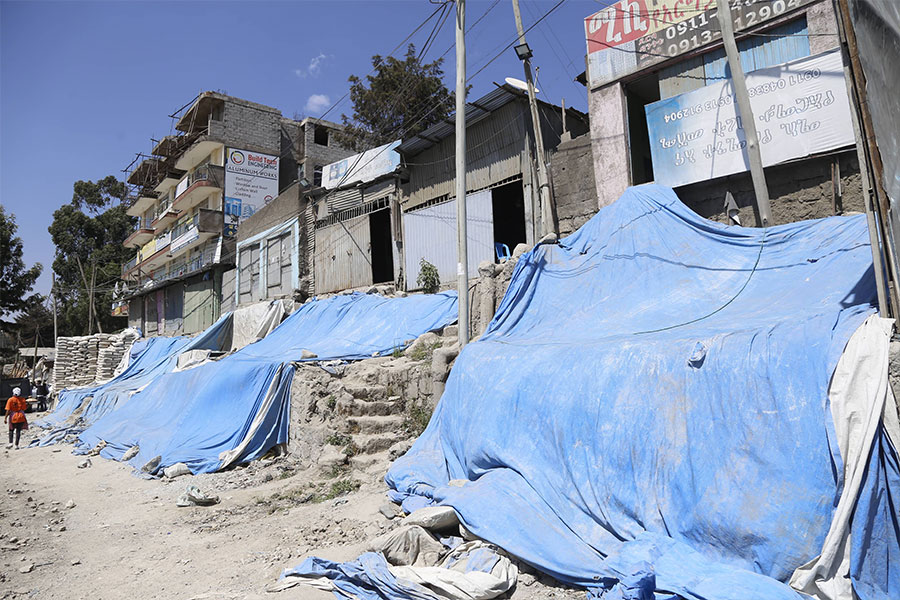
Fortune News | Sep 30,2021
Aug 21 , 2021
By BERSABEH GEBRE ( FORTUNE STAFF WRITER )
Harari has become the first regional state to impose a price cap on major food and non-food items in a bid to tame inflationary pressure.
The Trade Development Agency of the state, home to a quarter of a million population, has set a price ceiling on 41 items, including edible oil, teff, beef, and cement. It is a significant departure from the policy adopted by the federal government and regional states, where prices are determined by the market.
Last month, the country's headline inflation reached 26.4pc, the highest in a decade. Supply shortages, the impacts of COVID-19 on trade activities, unfair competition, price gouging, under-invoicing and speculation were among the reasons listed by the Ministry of Trade & Industry for the upsurge in prices.
However, regional authorities have recently been acting alone to respond to inflationary pressure in their respective markets, unlike in the past, where they move in tandem following policy from the federal government. Regional authorities, including those in Addis Abeba, blame "hidden and speculative forces" in the market for surging prices. Their responses vary from signalling coercive measures to imposing price caps and importing commodities on their own.
Last month, the cabinet of the Somali regional government approved a motion to establish a new enterprise that imports food items to stabilise the market. This was followed by warning from the Oromia, and Southern regional governments against businesses they allege are hoarding commodities and profiting from shortages in supplies.
Effective as of mid-August 2021, the price ceiling by the Harari government has been applied to retailers and wholesalers with the hope of tightening the grip on traders the authorities claim are involved in price gouging and hoarding. It is a measure the authorities aim to lower the region's inflationary pressure, which reached 14pc last month. In the case of food items, it is five percentage points higher.
"Residents of our region are frustrated by the unjust price rise that has been witnessed lately," said Bushri Aliye, head of the region`s Trade Agency.
Retailers working in Harari are told to sell teff for over 50 Br a kilo, 10 Br higher than the market in Addis Abeba, where food inflation reached 30pc last month. The price for palm oil is 480 Br, 30pc higher than the existing retail price in the capital. The same is true for cement. Retailers in Harari can only ask buyers 550 Br a quintal of cement.
Butcheries are also subjected to the price cap. They cannot sell over 300 Br for a kilo of meat, less than half the price set by their counterparts in the capital city.
"We conducted a market assessment before introducing the ceiling," said Bushri, adding that the measure goes with the free market principle his administration wants to follow.
Residents found the measure timely and a step in the right direction.
Though they had feared hoarding, there are no shortages, Almaz Endaylalu, a resident in Harer, observed
"The measure tamed the cost of living," said Almaz.
Demis Chanyalew (PhD) is an agricultural economist. He has published several books and conducted studies to understand the pricing pattern of goods, particularly food items, in Ethiopia. He believes the authorities have got it right.
"Better late than never," said the economist, recommending other regions follow Harari's suit.
According to Demis, focusing on pricing policy would be more helpful to control inflation, even more effective than using monetary and fiscal policy tools. The depreciation of the Birr has little to do with the rising prices of these goods, as most of them are produced domestically, without the need for foreign currency, Demis argued. He encourages the authorities to extend the measure to primary goods to safeguard the interests of producers.
PUBLISHED ON
Aug 21,2021 [ VOL
22 , NO
1112]

Fortune News | Sep 30,2021

Featured | Apr 22,2023

Radar | Mar 06,2021

Life Matters | Oct 04,2025

Viewpoints | Apr 28,2024

Commentaries | Mar 25,2023

Fortune News | Mar 04,2023

Radar | May 02,2020

My Opinion | Dec 25,2021

Fortune News | Aug 21,2021

Dec 22 , 2024 . By TIZITA SHEWAFERAW
Charged with transforming colossal state-owned enterprises into modern and competitiv...

Aug 18 , 2024 . By AKSAH ITALO
Although predictable Yonas Zerihun's job in the ride-hailing service is not immune to...

Jul 28 , 2024 . By TIZITA SHEWAFERAW
Unhabitual, perhaps too many, Samuel Gebreyohannes, 38, used to occasionally enjoy a couple of beers at breakfast. However, he recently swit...

Jul 13 , 2024 . By AKSAH ITALO
Investors who rely on tractors, trucks, and field vehicles for commuting, transporting commodities, and f...

Oct 11 , 2025
Ladislas Farago, a roving Associated Press (AP) correspondent, arrived in Ethiopia in...

Oct 4 , 2025
Eyob Tekalegn (PhD) had been in the Governor's chair for only weeks when, on Septembe...

Sep 27 , 2025
Four years into an experiment with “shock therapy” in education, the national moo...

Sep 20 , 2025
Getachew Reda's return to the national stage was always going to stir attention. Once...